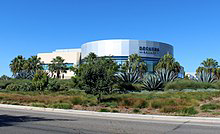Several legendary investors have high hopes for this “Magnificent Seven” stock.
With a market cap of over $3.3 trillion, Apple is the world’s largest public company.
Yet, it’s time for investors to forget it. Well, not literally — just figuratively.
That’s because, while billionaires like Warren Buffett have been selling shares of Apple, several other famous billionaires have been stocking up on a different stock: Amazon (AMZN 2.77%).
Here’s what’s happening and what it means for investors.

Image source: Getty Images.
Billionaires are buying Amazon
Every three months, large investment managers, hedge funds, and company insiders are required to file 13F forms with the Securities and Exchange Commission (SEC). These forms disclose what stocks are held, thus providing the public with a glimpse behind the curtain to see which stocks prominent billionaires are buying and selling.
Last month, the most recent 13F filings were released, with data from the three months ending on June 30, 2024. And it revealed that several well-known billionaires are adding to their positions in Amazon.
For example, Bridgewater Associates, a hedge fund run by billionaire Ray Dalio, purchased more than 1.6 million shares of Amazon. That more than doubled the fund’s total holdings of Amazon to some 2.65 million shares, worth roughly $500 million.
What’s more, Citadel Advisors, the hedge fund run by billionaire Ken Griffin, increased its holdings of Amazon by around 1.1 million shares. It now controls about 7.7 million shares, valued at almost $1.5 billion.
Why billionaires are buying Amazon
All this buying begs the question: “Why are billionaires racing to buy up shares of Amazon?”
First off, let’s remember that 13F disclosures are not a perfect indication of how billionaires really think. For one thing, they’re a snapshot. Funds may have already reduced or sold out of stock positions before their 13Fs are even made public.
Second, funds are only forced to disclose their long positions, not their short positions. Therefore, it’s difficult to know a fund manager’s true intentions. Are they really bullish on a given stock, or is their big new position just a hedge? There’s no way to know for sure.
However, assuming that the Amazon positions are bullish bets, what are the reasons for being bullish on Amazon right now?
I can think of more than a few. But let’s focus on the company’s impressive growth.
Despite already generating well over $500 billion in annual sales, Amazon continues to increase its sales at a breakneck pace. In its most recent quarter (the three months ending on June 30, 2024), the company reported revenue growth of 10%.
At that pace, the company may add close to $50 billion to its sales total over the next 12 months. For context, that’s the same amount of annual sales generated by Nike, a titan within the sports apparel industry and an iconic American company for more than four decades. In other words, Amazon’s revenue is so big and growing so fast, that its growth alone is equivalent to adding a company like Nike — every year.
Is Amazon still a buy now?
Amazon remains a wonderful company. It has both the world’s largest e-commerce business and the largest cloud-services business (Amazon Web Services). Furthermore, it continues to innovate in new and exciting fields, like robotics and artificial intelligence (AI).
To sum up, it can be hard to really understand what billionaires are thinking (despite what their 13F filings reveal). Nevertheless, Amazon stock remains a buy now thanks to its excellent fundamentals and solid prospects for the future.
John Mackey, former CEO of Whole Foods Market, an Amazon subsidiary, is a member of The Motley Fool’s board of directors. Jake Lerch has positions in Amazon. The Motley Fool has positions in and recommends Amazon, Apple, and Nike. The Motley Fool has a disclosure policy.
















